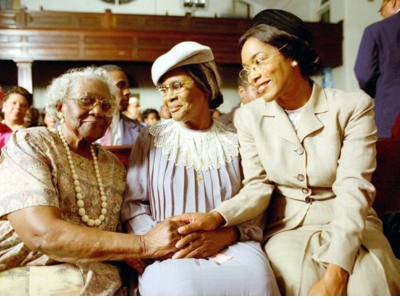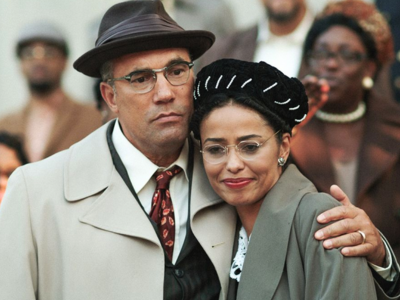Women in American History: Rosa Parks

Rosa Parks is frequently referred to as the "Mother of the Civil Rights Movement”. Let’s find out why.
On December 1, 1955, an African American woman named Rosa Parks refused to give up her seat on a segregated bus in Montgomery, Alabama to a white passenger. This act of civil disobedience set off a chain reaction that spread throughout the country. It sparked the Montgomery Bus Boycott, which continued for over a year. It inspired the Civil Rights Movement and started a wave of demonstrations, activism, and legal actions to overturn segregationist legislation.
Rosa Parks' refusal to give up her seat was not an unplanned act of defiance against societal tyranny. Her brave protest embodied the collective resentment and resistance of African Americans who had long been subjected to injustice and segregation. Because of her unrelenting courage and dignity in the face of hardship, Rosa Parks became a beacon of hope who encouraged others to fight for justice and equality.
The Montgomery Bus Boycott resulted in a historic court win that altered the American legal system. Racial segregation on public transportation was deemed unlawful by the Supreme Court in Browder М. Gayle in 1956. This decision was a major turning point in the struggle for civil rights and helped pave the way for later legal victories against segregation in other spheres of society. The unwavering dedication to justice demonstrated by Rosa Parks paved the way for the revolutionary societal transformations that would come.

Rosa Parks had a significant role in American history that went beyond the Montgomery Bus Boycott by shattering barriers and igniting change. Her actions spurred the wider civil rights campaign and posed a threat to entrenched racial segregation. Numerous people have been motivated by her impact to tackle inequality and work towards a more inclusive and just society. The legacy of Rosa Parks is still relevant today, serving as a constant reminder of the value of speaking up against injustice and the strength of individual action.
In this article, you can find more information about the Civil Rights Movement.
Оставить комментарий
Для комментирования необходимо войти через
![]() Вконтакте
Вконтакте